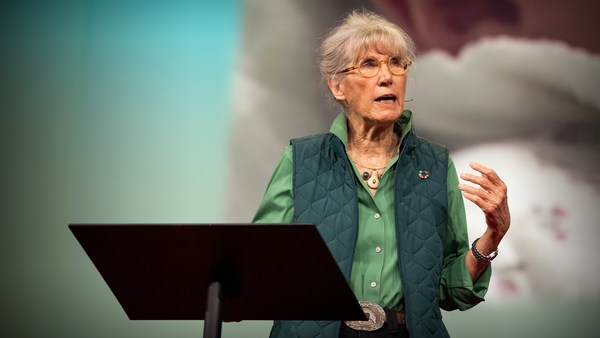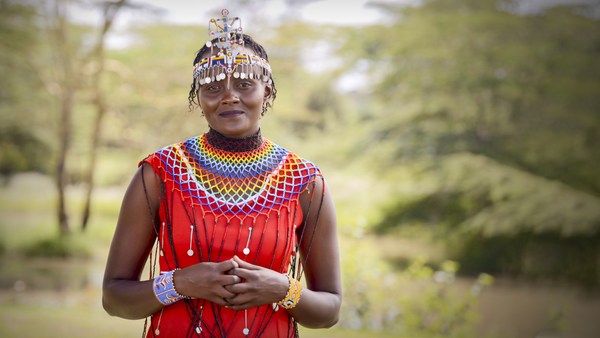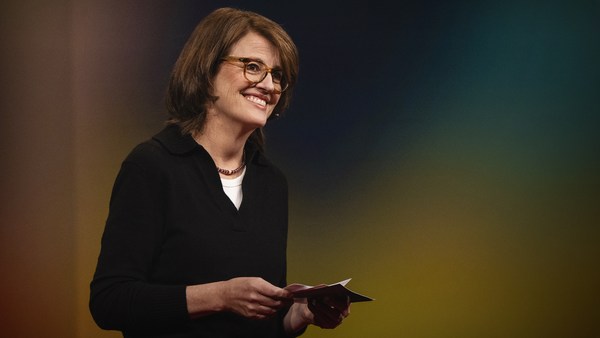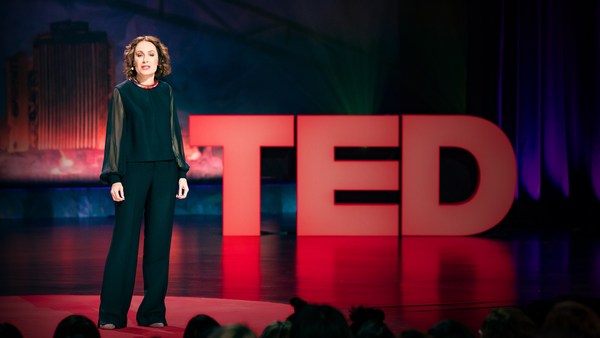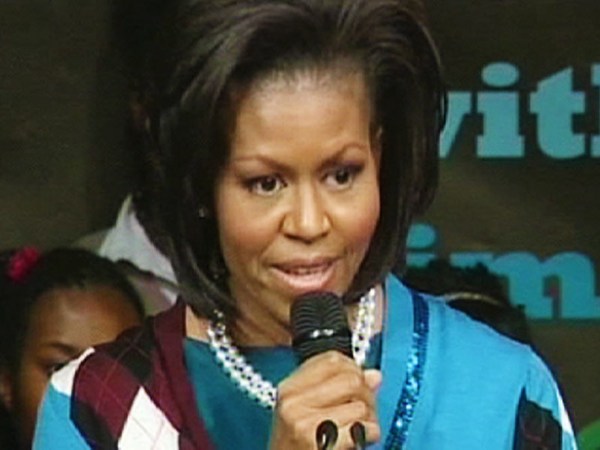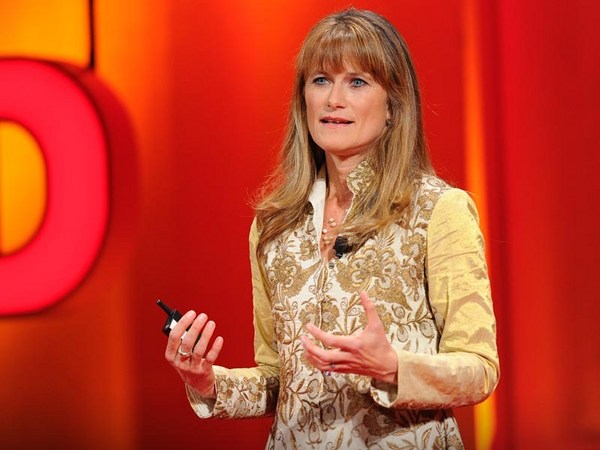We are standing on a bridge between one way of family life and something much different. To something that relies not only on human care, but also technology to manage the many responsibilities of raising a family. My plea to all of you is to be careful and move with intention. Leaving traditions behind for the new ways can be very risky. And let me explain.
See, I was raised in a Maasai village in Tanzania, in a family of 38. One father, five mothers and 32 siblings. And I can literally name them all. There’s Namelok, Mallya, Samu, Nainoto ... I'm just kidding, I won't do that.
(Laughter)
As a kid, my first job of the day was to milk our cows and goats. It took about two hours, but we girls did it together. It also hurt my fingers, but I loved it because we sang to the cows to help them relax and give more milk. After the milking, we went for firewood. It took three hours. We girls did it together. Singing on the way to the bushes, eating fruits and dancing on the pathways. Next, we went for water. Another three hours. The water hole was maybe 10 kilometers away. But we girls did it together. Led by our mothers who taught us how to avoid elephants and buffaloes and monkeys who are all going to the same place for the same reason. By noon, it was time to sit under the trees and learn how to do our beading. Late in the afternoon, we will see the dust kicked up by our cows coming home and the bells around their necks ringing out. My brothers and other warriors will be here soon, and that meant dinner for the whole family. While eating, we hear stories from our elders and we sing. We sing a lot. I never wanted the day to end, but when it does, we sleep [in] huts on wooden platforms covered with leather. There was no such a thing as a pillow. There was fire next to our beds to keep us warm. And we had each other, six, seven, eight of us, all snuggled like puppies. It was good.
Around seven years old, I was chosen randomly by the government to go for a primary school. I would not have gone on my own. In fact, the villagers try to hide kids from outsiders. They know that kids who go to school start speaking a different language, literally and figuratively. And parents are not even told where the kids are being taken. But I was picked. And then, seven years later, I was selected to attend a secondary school in the city, and my parents cried all night. My mother said, "I will not survive without you." And I thought maybe I better remain behind to save my mother. See, my father eventually gave me his blessing, so I will not have to leave the village with a curse on me.
Many people have opinions about the Maasai way of life. It is not all good. There is genital cutting. There is forced marriages. And girls are not eligible for inheritance. But I was cared for and I was needed and I belonged. There was always a place for me. And just between us, I always felt like everyone's favorite.
(Laughter)
Especially my father's. When I was 15, my family arranged for me to marry a Maasai man with many cows. Lots of cows. I said no. They found another man, and I said no again. They found another husband for me. I said no for the third time. And each time there were meetings, tears and shame. There were other emotions, too. Some offered quiet encouragement.
Eventually, I left the village for the city and now I live with my chosen husband, three children, a house, a car, a laptop, shoes and even trousers with zippers.
(Laughter)
You see, modern families seem to value personal autonomy, while traditional families, they put more emphasis on resource sharing and collective decision making. So how can we blend these two worlds? This is our challenge. Mine and yours, too.
See, 25 years ago, I started an organization, the Maasai Women Development Organization, to give women access to education and healthcare. Here's one way we bring the old into the new. The first time I gave birth, I was with my mother, other mothers, sisters, cousins and midwives. About 15 people. So much knowledge in the room. Though my husband had to wait outside. In the city, for the second child, the hospital said two people only, and their policies were very strict, and they ignored traditional knowledge. At MWEDO, we do a little bit of of both. So we have clean, prepared birth centers, schools that consider our culture and trained midwives, and we also include our husbands.
So the question for everyone here is: How can we integrate the best part of our childhood into the world as it changes? You see, I don’t walk 10 kilometers a day anymore. And I’m not on the land with the animals from 5am to sundown anymore. I'm not hugged and held by dozens of people a day anymore. In my modern family, we decided there will be more education, there will be no genital cutting, more playing, no forced marriages. But there will be more contributing, more storytelling, and there will be more listening. And all that can be done in a multigenerational setting while keeping the elders in the position of prominence.
There are costs to moving on, for sure, but I am the bridge. You, too, are a bridge. And whether you know it or not, what you did as a child is going to sound as foreign to the next generation as the girls singing to cows sounded to you today.
Well, I guess my question is: Do you know what you want to preserve for the next generation? And do you know how you'll do it? You see, integration takes intention and strong leadership. So let's pause and make our list of must haves in the new world. Let's make sure, as a species, we can still sing.
(Maasai women singing)
Thank you.
(Applause)
